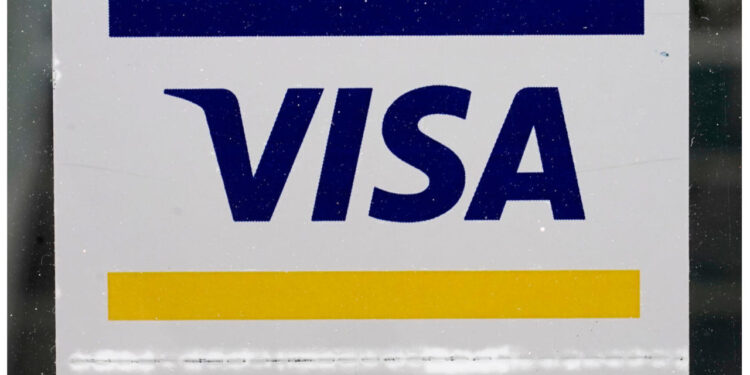Get ready to slim down your wallet because some changes are coming your way.
Visa has recently unveiled significant changes that will impact how credit and debit cards operate in the United States in the near future.
Americans may soon find themselves carrying fewer physical cards in their wallets, as new features are set to make the traditional 16-digit credit or debit card number printed on every card less relevant.
These changes will bring about significant transformations in how payments are conducted in the U.S., marking a major shift since the introduction of chip-embedded cards a few years ago. Moreover, these changes come at a time when Americans have a multitude of payment options at their disposal, extending beyond just “credit or debit.” These options include buy now, pay later services, peer-to-peer payment platforms, direct payments through banks, and digital payment systems like Apple Pay.
Mark Nelsen, Visa’s global head of consumer payments, expressed his belief that the inclusion of these features signifies a significant step forward. According to Nelsen, consumers may no longer be required to manually input their account numbers.
Americans will experience a significant change as banks will now have the capability to provide a single physical payment card that will be linked to multiple bank accounts. This eliminates the need to carry multiple cards from different banks, such as Bank of America or Chase, along with their respective credit cards in a physical wallet. With this new system, individuals can establish specific criteria with their bank, such as setting all purchases below $100 or those with a particular merchant to be applied to their debit card, while other purchases can be allocated to their credit card.
Visa plans to introduce a new feature this summer that is already being used in Asia. The feature will allow customers to buy now and pay later. Affirm, a popular buy now, pay later company, will be the first of Visa’s customers to roll out this feature in the United States.
Visa has introduced several new features in response to the rise of online payments fraud. As digital payments become more prevalent worldwide, the company has observed a significant increase in fraudulent activities conducted online. Visa estimates that payment fraud occurs approximately seven times more frequently in the digital realm compared to in-person transactions. Additionally, criminals now have access to billions of stolen credit and debit card numbers, further exacerbating the issue.
In response to recent developments in the non-payments industry, several new features have been introduced. For instance, the Apple Card, which operates on the Mastercard payment network, does not have a traditional 16-digit account number printed on it. Moreover, Apple Card users have the flexibility to request a new credit card number whenever they want, without the need to discard their physical card.
In the vision of Visa executives, banks will issue cards in the future where the 16-digit account number, if included, will hold mostly symbolic value.
Visa has introduced several updates, including modifications to tap-to-pay functionalities. Instead of relying on a smartphone’s camera to scan card information or tapping the card on their smartphones to authorize online transactions, Americans can now simply tap their credit or debit cards on their smartphones to add them to mobile wallets. Additionally, Visa plans to incorporate biometrics for transaction approval, akin to how Apple devices utilize fingerprint or face scans. These advancements aim to enhance convenience and security for users.
It will take time for the features to trickle down to the banks, who will be responsible for deciding when and how to implement them for their customers. However, it is worth noting that these features have been specifically requested by the financial institutions, as they are the customers of Visa and issue cards with the Visa label.










